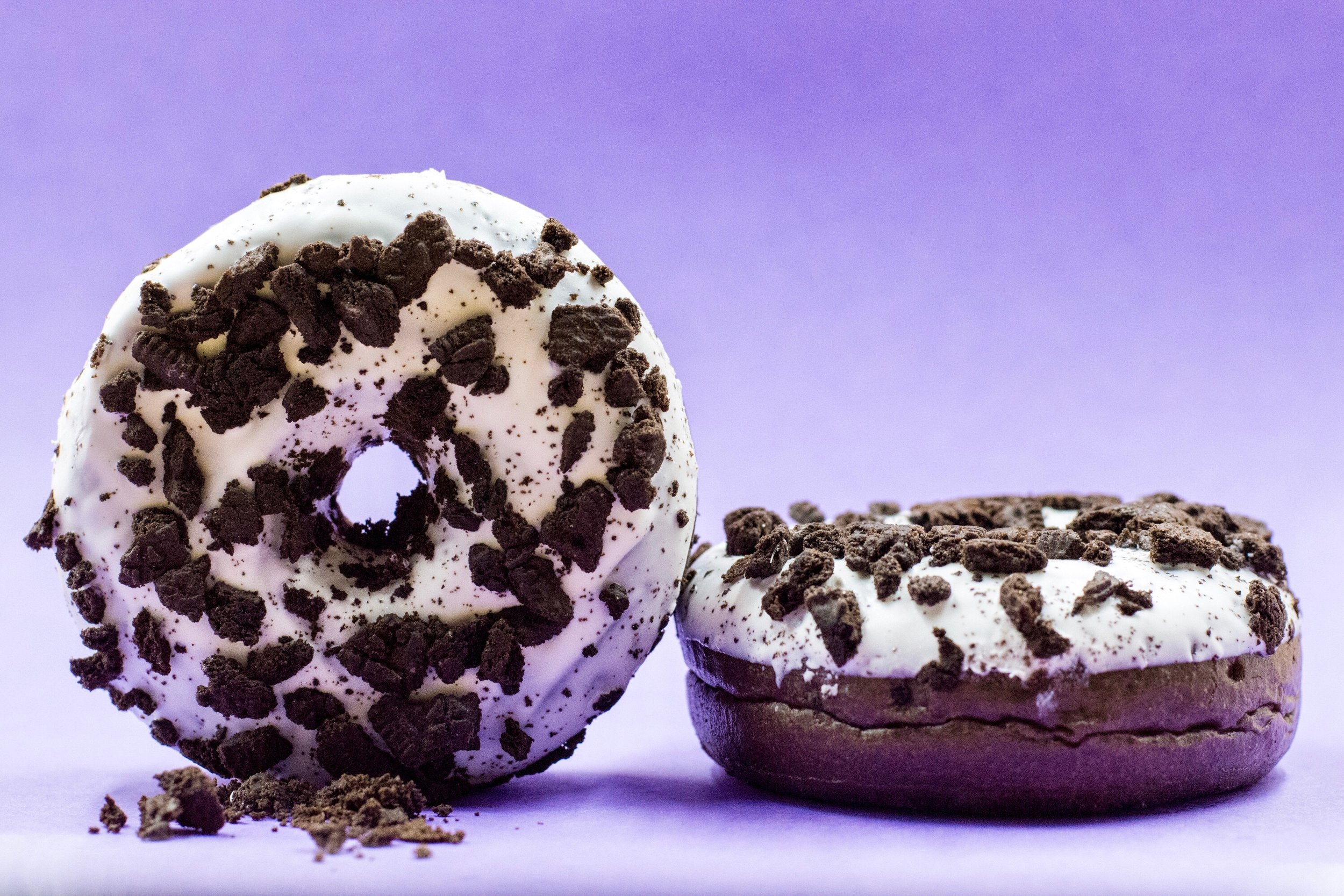How Can I Eat Intuitively When I'm Addicted to Food?
I remember the first time I heard about intuitive eating. I was a nutrition student and a professor brought it up in one of her classes. I was learning about the “obesity epidemic” and all of the diseases and disorders that stem from being overweight and obese. As students we learned in-depth versions of diets and restrictive remedies to fix this so-called obesity crisis. Then comes this idea of eating intuitively and not dieting… EVER.
Eat when you’re hungry.
Stop when you’re satisfied.
Trust your body to guide you, not a diet.
WHAT?!?
I was so completely confused. My obsession with weight and healthy eating is what drove me to leave a job in PR and go back to school for nutrition. I was deep into diet culture. I was micromanaging the way I ate, restricting and following food rules, and absorbing a lot of diet-culture messages in my nutrition classes.
How on earth could I eat INTUITIVELY? I’m sure that’s what a lot of you are thinking too. How can you look at a freshly made, piping hot pizza and just eat enough until you’re satisfied. Or eat ice cream? Cookies? Anything chocolate? Bagels? How can we eat these things without going off the deep end and completely bingeing?
Think about the foods you think you’re addicted to. Do you restrict any of these foods from your diet on a regular basis? Do you avoid having these foods in your house?
Once you’ve established this food is addictive poison for you and you don’t have it anywhere around you, what happens once you DO have it in your possession? Do you eat way too much of it? Think of chocolate. If you never have it around, what happens once your kids go trick-or-treating on Halloween? Do you devour a lot of Twix and Snickers and then think you’re so out of control that you must be addicted to sugar, chocolate, or both?
In the world of clinical nutrition the topic of food addiction is very controversial. Can you be addicted to food the way some are addicted to drugs or alcohol? Google “food addiction” and you will find many journal articles arguing whether this exists or not.
Let’s consider why you may think you’re addicted to food. When you restrict a food, when you do not allow yourself to eat something, when you do not keep it your pantry, this food suddenly has a lot of power to it. If you were a kid whose parents did not let you eat treats freely, what happened once you went over to your friend’s house and this friend’s parents were much more liberal with food and treats? You probably let yourself eat anything and everything, maybe even to the point of feeling stuffed and sick.
There have certainly been many foods I felt I couldn’t trust myself around. Here are just a few foods that were like crack for me:
Oreos
Stacy’s Pita Chips
Tostitos
Any type of ice cream
Pizza
Last winter I decided to tackle a lot of these so-called “food addictions” that I had. I bought pita chips regularly for a few weeks. I’d add a pile of the chips next to my sandwich, soup, or salad every day at lunch. After a few days of doing this I felt like I was kind of over pita chips. They really were not a big deal anymore. When they’re out on a table at a party I may take a few but I don’t DEVOUR them the way I used to.
Think about Thanksgiving Day. There are so many foods on the table that you may not eat regularly all year long. Pumpkin pie, sweet potato pie, baked veggie dishes with cheese, and so on. After eating them on Thanksgiving and perhaps leftovers the day after, these foods start to lose their appeal.
Another thing to consider is the foods that you DO let yourself eat freely now. I don’t know many people that restrict themselves from eating broccoli or apples, for instance. Most people eat broccoli or apples when they want and without guilt. They are not “bad” foods in your mind. Do you binge on these foods? Probably not because you don’t restrict them.
If you give yourself permission to eat all foods, the urge to binge on them will slowly decrease. It’s a process and doesn’t happen overnight. In this world of needing instant gratification, it’s much easier to proclaim you have a food addiction, do some sort of cleanse, and buy into the promise of weight loss and food addiction detox. Making peace with food means being patient with yourself. It’s making time for yourself to understand why you eat the way you do.
My first doubts about intuitive eating were that I couldn’t be trusted allowing myself to eat certain foods freely. I know many share this doubt. You need to allow yourself to go through a process. If you’ve restricted foods for years or most of your life, you can’t expect this change to happen quickly and without work on your part. Once you grant yourself permission to eat all foods freely, you will learn so much about yourself. You may even discover some of these “addictive” foods don’t even taste good to you anymore.
Do you feel like you’re addicted to a certain food? What is it? How do you feel when you eat it? Let me know in the comments! I’d love to write more about this topic of addiction and control around food.

